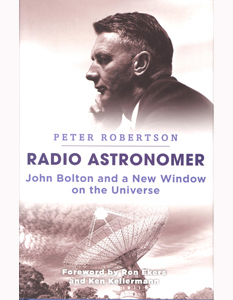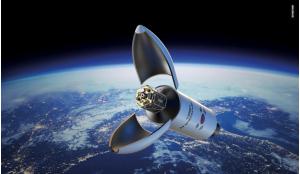Science and technology is fascinating in itself, and is attractive to bright and inquisitive children because a lot of it seems amazing and unknowable, like magic, but it’s only when one becomes older that one realises that science and technology are products of the human mind. It’s the people that count. And that’s why biographies of the people who were instrumental in the various aspects of science and technology are important.
This biography of Australian radio astronomer John Bolton is a case in point. In the late 1940s, he discovered and identified the first discrete radio sources that, according to the author, “marked the birth of a new field – extragalactic radio astronomy”. He also had the “unusual distinction” of being the inaugural director of two new observatories, one at Caltech in the US and another in New South Wales, Australia (the Parkes radio telescope which featured in the movie film ‘The Dish’).
The author traces Bolton’s story from his birth in Sheffield, UK, via education at Trinity College, Cambridge, and his emigration to the antipodes, to his professional achievements. Towards the end, we learn of Bolton’s involvement with the Apollo programme in that Parkes was famously used as a receiver for the Apollo 11 moonwalk (as told in ‘The Dish’). Asked about the possibility of a malfunction by an ABC reporter at the time, Bolton replied “We have a number of 100 to 1 chances and a number of 1000 to 1 chances…perhaps our biggest weakness is the weather”. This turned out to be prophetic, as Bolton recalled, because moments before the moonwalk began a violent squall approached the dish, causing “two sharp wind gusts [that] hit at over 100km per hour, slamming the dish back”.
This interesting book is illustrated with monochrome photos and includes nearly 50 pages of chapter notes, bibliography and index. Bolton might not be up there with Lowell, Lovell and Hubble, but it’s important to document the ‘lesser greats’ who made significant contributions to the ever broadening field of astronomy.
Mark Williamson, Space Technology Consultant











